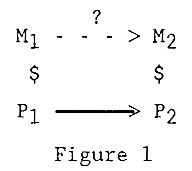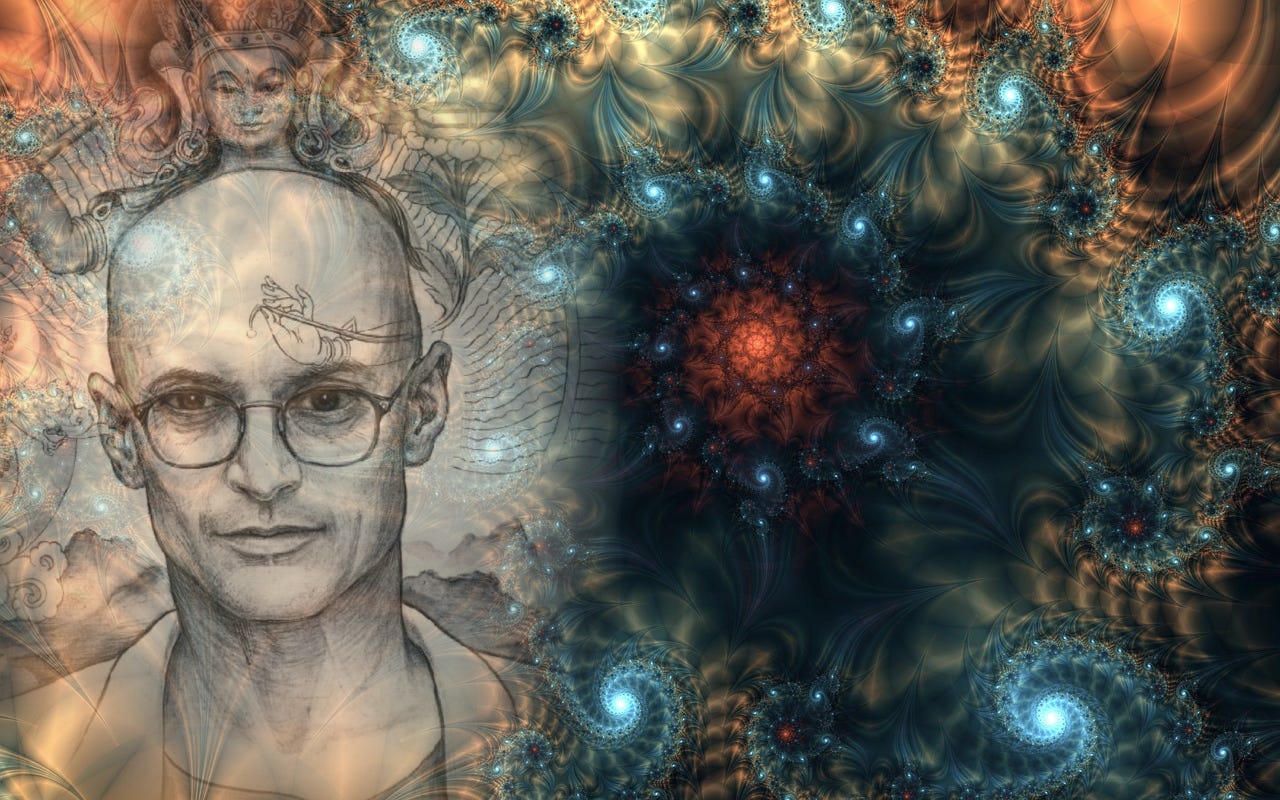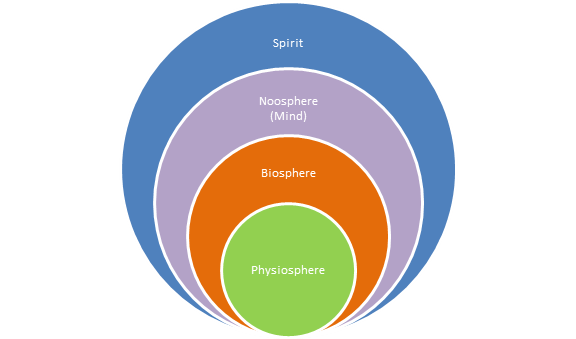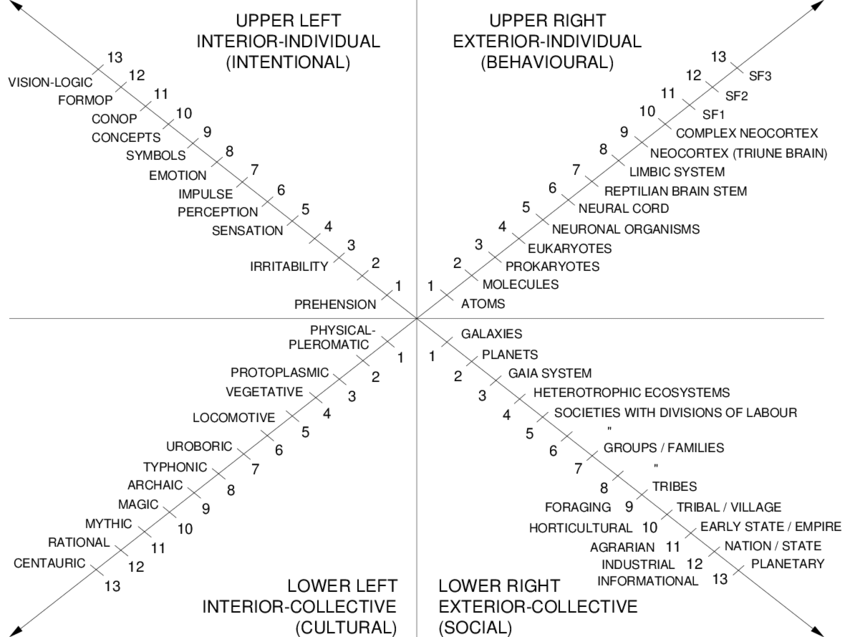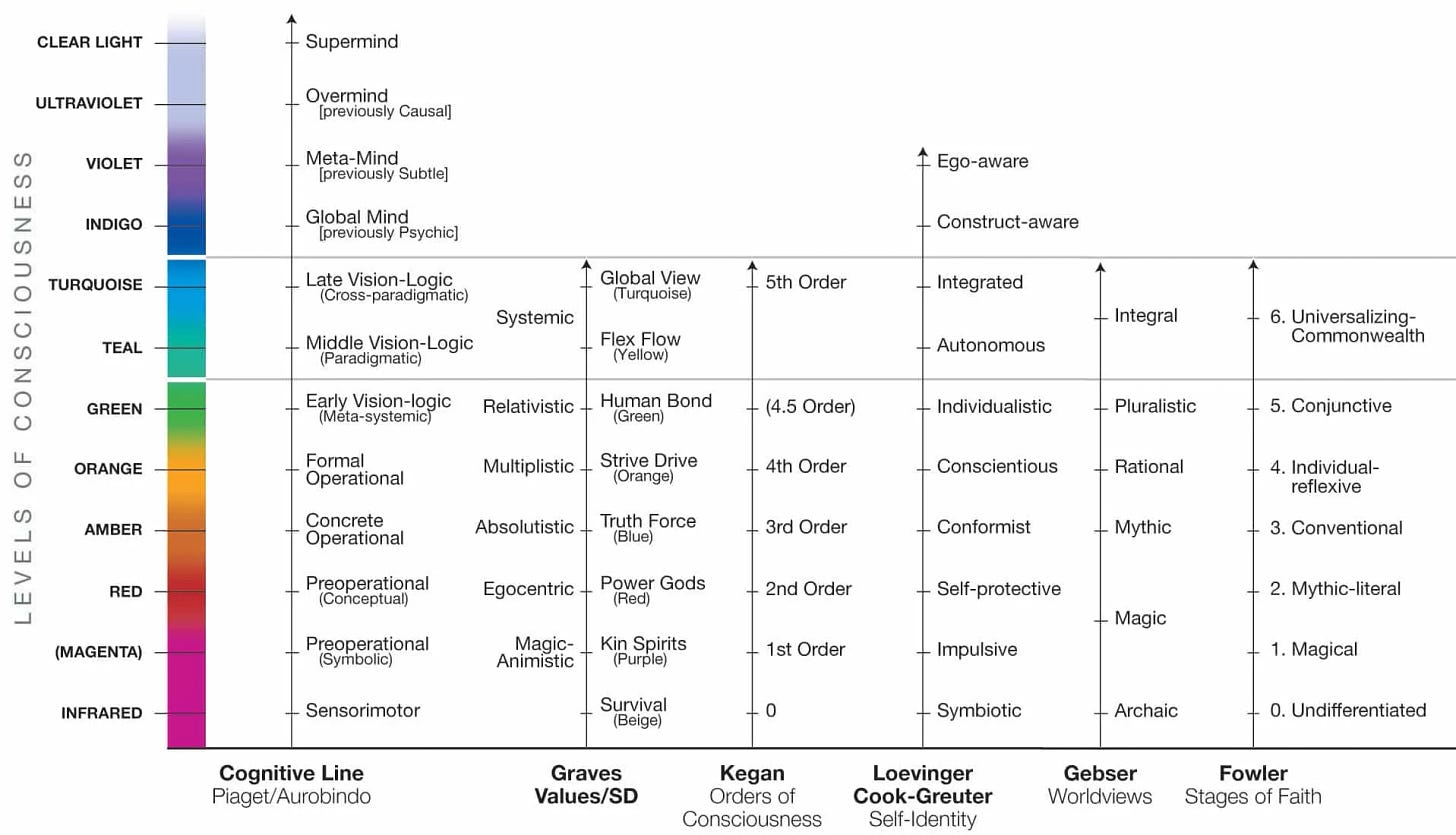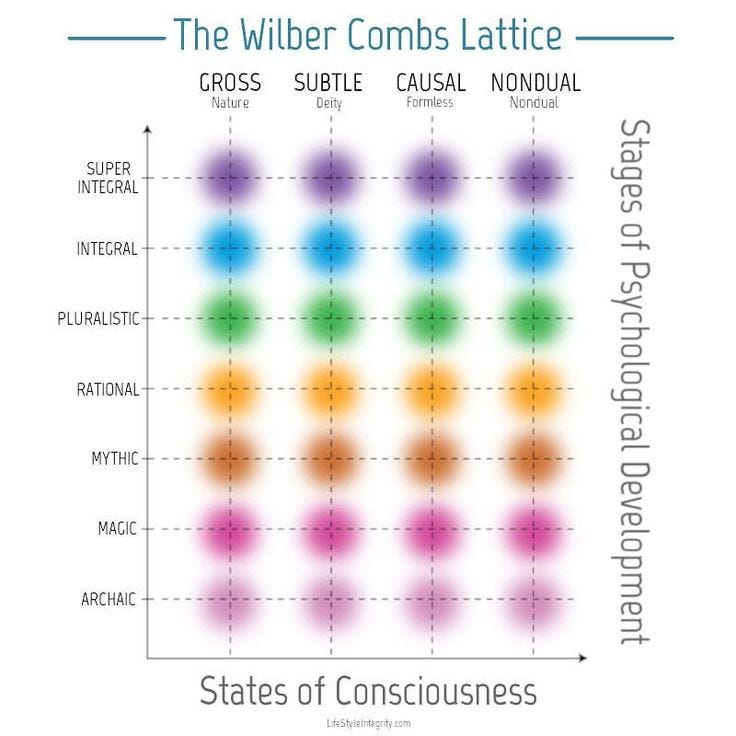From Things to Events: Whitehead and the Materiality of Process
Abstract
The new materialist turn has refocused attention upon the shortcomings, both philosophical and scientific, of styles of thought that figure matter as an inert substance. According to the new materialists, the concept of matter must be rethought in order to account for its own vital capacities. Whilst largely sympathetic to this critique, this paper short-circuits the contemporary focus on matter through a sustained engagement with the process philosophy of Alfred North Whitehead. For Whitehead, the concept of matter represents a failure to think process on its own terms; that is, without invoking an underlying permanence. Whitehead's philosophy is thus of great significance to contemporary debates because it questions what it means to speak of agency, relation, and vitality in a world composed of processual events rather than things. In doing so, it sharpens our sensitivities towards nonhuman processes of existential change. Exploiting this capacity to shift our attention, the paper explores the implications of Whitehead's philosophy by staging an encounter with a peculiar experimental object. By unpacking the key concepts of ‘occasion’, ‘prehension’, and ‘concrescence’, the object in question is gradually transformed from discrete thing to processual event, with a number of consequences for materialist thought.
IV
Emergentist Panpsychism
by Philip Clayton
TRANSCRIPT
Panpsychism is not like pregnancy. A woman either is or is not pregnant. In such cases more
generally, either x or not-x. By contrast, you are not either warm or not warm, tall or not tall,
smart or not smart. You can be more or less slow, more or less prompt, more or less witty. The
discussion of panpsychism is changed in important and fruitful ways when we recognize that the
topic is better understood in the latter way than in the former.
At first glance, the panpsychism debate appears to be a question of all or nothing, just as the thief
either takes all William’s money or he doesn’t. But I suggest that we need to think our way
beyond this way of approaching panpsychism. Particularly in the context of panentheism, our
discussions should become more complex than, say, the thesis that all levels of evolution can be
summarized under the heading of pan-psyche or, following David Ray Griffin, pan-experience.
Instead, I will argue, the discussion of God, evolution, and psyche needs to be expanded to
include the full variety of qualities, including awareness, intention, goal-directed behavior,
mental representation, cognition, and consciousness. Clearly this shift has implications for
understanding the nature and scope of metaphysics and theology, a topic to which I shall return
at the end of this short paper.
Three things will happen when we return to the panpsychism question after this analysis. The
first, I hope, is that it will help to deepen the discussions of John Cobb’s work, and of
Whitehead’s, during out two days together. The other two reflect my deep interest in biological
evolution and theology. We should be able to specify the sense in which evolution produces
qualities that were not actually already in the parts. And, finally, we should be able to reach a
more complex understanding of the relevance of panentheism to questions of the evolution of
consciousness, and hence a more complex understanding of the Divine itself. The upshot is a
more limited affirmation of panpsychism, in contrast to the more “maximal” affirmation of the
existence of psyche in all things, or all things as psyche.
The qualities that we call mental or proto-mental are extremely diverse. Because the differences
are greater than is often acknowledged, in this paper I will be defending a minimal or
“gradualist” panpsychism rather than traditional or “maximal” panpsychism. It will not have
escaped you that minimal and maximal are terms on a quantitative scale rather than expressions
of a forced either/or choice. Panpsychism in this more minimal form, I will argue, is the more
2
compelling view; and the quantitative nature of the discussion should help us to more fully
nuance our discussion during the discussion.
First, though, let’s get a full sense of the range of questions raised by this topic. If we are going
to make progress in the areas where stalemates usually arise in discussions between
Whiteheadians and emergentists, we will need to understand the questions that need to be raised
… and the questions that are less productive.
Clarifying the questions
(1) Mind and mental entities. Of course, many philosophers today doubt whether mentality as
such even exists or, more accurately, whether mental states or qualia have a primary rather than
derivative existence. Most people here, I assume, are well aware of this debate, and some engage
in it professionally. But the major advocates of physicalism are not present here (as far as I
know); in the audience I don’t see Wolf Singer, Francis Crick, or Dan Dennett. Whether
anything mental exists may be a major debate, but I don’t think it’s the topic de jour.
I thus recommend that we begin instead with the assumption that some mental attributes or
things exist and exercise causality qua mental. (I will problematize “the mental” in a moment.)
Mentality is not merely an epiphenomenon. It is not merely supervenient on physical states, nor
is it merely a weakly emergent property of physical matter/energy, where all true causal forces
reside.
In short, we have more important fish to fry than reductionism. Leaving aside reductionism at the
start will allow us to focus in on a different set of questions. For example: Does finite mentality
arise at some point in cosmic evolution, such that it was not actually present at one point in time
and then later was? If mentality is emergent, then must it always be linked to something physical,
say a body? Do separate mental units, say souls, exist, or are they just multiple manifestations of
one mental reality (call it God)? Skrbana puts it nicely:
The central issue here is whether we speak of such mind as “mind of single universal”
(God, the Absolute, the World Soul, and so on) or of mind as attributable to each thing in
itself (of each object’s possessing its own unique, individual mind). The former view
would be a monist concept of mind, the latter a pluralist concept.1
Whitehead’s famous notion of actual entities2 moves in the direction of radical pluralism.
Assume for the moment that he is right and that an extremely large number of actual entities
(AEs) exist. This requires us to think of each such moment of creative becoming as a distinct
entity or occasion, existing on its own. Of course, one can be a radical pluralist in this way and
3
still hold that AEs are so interdependent that they are internally related (as I argued in a recent
paper). That would mean a radical pluralism of psyches.
Does the world contain anything that is non-mental, such as purely physical objects? I’d
encourage you to resist this either/or frame; it leads too quickly to a simple syllogism:
Some mental things exist.
Nothing exists that is purely physical.
Hence, all things are mental things.
I will suggest that the more interesting discussion is of the varieties of mentality or “psychisms.”
Interesting nuances of “psychism” surface when one explores options such as limited
panpsychism, emergentist panpsychism, or the panpsychism of potentiality and actuality, as I do
below. These nuances cause us to reflect on the differences, and thus on the status of the unifying
concepts.
To proceed in this way is to hypothesize that “the mental” is not an either/or quality, such that an
entity either is mental (has the attribute of mentality) or isn’t. (For now I use “a mental entity”
and “an entity that has mentality” interchangeably.) It is more fruitful to ask, “To what extent,
and in what sense, is this entity mental?”
(2) Panentheism. A series of questions arise at the intersection of panpsychism and panentheism.
Some represent difficult challenges for classical panpsychism.
If there is a plurality of mental entities, how is God related to each one? For Whitehead, each
actual entity is an ultimate, not more dependent on God than God is on it. But actual entities
could be dependent on God in a stronger way, existing only through the continuing will of God;
or they could be real individual expressions of a single divine Spirit (this is the view of the
Indian philosopher Ramanuja); or, following Spinoza, what we call individuals might merely be
ways that the one divine substance is manifested in a particular time or place ― modes of the
One. How would one decide between these options?
Panentheism might also raise some critical questions for classical (pre-Whiteheadian)
panpsychism. What is God’s relationship to finite mental entities if they are really present “all
the way down”? If God lures even an electron, what does God lure it to do? Or does theological
panpsychism instead support monism? That would mean that the psyches that seem to be in all
things are actually just one psyche: the one mind of God, or Nous in Plotinus’s sense. For that
matter, how would one distinguish finite “natural” mentality from infinite divine mentality? Can
the one be within the other without compromising the integrity of either? Do classical
4
panpsychisms maintain that it’s the God question that supports the dichotomy either everything
is mental or nothing is mental and, if so, why?
In contrast, a gradualist panpsychism begins with the question To what extent, and in what sense,
is a given entity mental? Formulating this question, one immediately recognizes that the
relationships between panpsychism and panentheism are rather more complex than one might
have thought. There are no simple entailments: one can be a panpsychist without being a
panentheist, for example if one is a pantheist. Conversely, one can be a panentheist without being
a panpsychist, for example if one holds that the world is God’s (material) body. Above all,
gradualist panpsychism shifts the conversation in that one must now ask about the relationship
between the panentheistic God and the whole history of emergent mentality.
Emergent Mentality
Gradualist panpsychism seeks a theory of consciousness that is consonant with the results and
the methods of the sciences as well as with human phenomenal experience. Let’s call this a
theory of emergent mentality. It’s the view that the particles and physical states of (say)
macrophysics and physical chemistry do not manifest an actual mentality; they do not have
intentions, for example. The first self-reproducing cell, by contrast, does have a primitive
awareness of its environment. Increasing complexity across biological evolution brings more and
more complex awareness, with human consciousness being the most advanced form of
awareness that we have yet discovered.
Emergent mentality as I use the term stands in contrast to Whitehead’s panpsychism or
“panexperientialism.” Famously, Whitehead holds that all units of reality are occasions of
creative becoming. Each actual (as opposed to merely potential) entity is thus its own center of
experience. If given only a single argument to defend this view, Whiteheadian panpsychists will
generally argue that mentality cannot come from something that is non-mental. But
Whiteheadians are by no means the only philosophers who object to gradualist theories of
mentality. All dualists do, as well as many neuroscientists who are drawn toward exclusively
material explanations of thought and consciousness. So let’s call this particular critique the “no
mind from matter” (NMfM) Objection. Thomas Nagel sometimes expresses a similar intuition as
fundamental or “schematic” for him: “In its schematic, pre-Socratic way, this sort of monism
attempts to recognize the mental as a physically irreducible part of reality.”3 I will argue that this
intuition does not stand up to closer examination, at least not in this particular (non-theistic)
form.
Finally, I do not think that theism as such falsifies one option and verifies the other. It is not
inconsistent for advocates of most (but not all) forms of theism to affirm either Whiteheadian
5
panpsychism or emergent mentality. But I do think that setting panentheism in dialogue with
contemporary philosophy and science supports gradual over maximal panpsychism.
The argument proceeds in four steps.
(1) Evolutionary mentality and emergentist panpsychism
The evolutionary evidence suggests the emergence of the various phenomena that we call
mentality, a position often called emergentist panpsychism. Of the various forms of limited or
gradualist panpsychism, this position is in my view the most convincing. Once again, it starts by
challenging the assumption that all existing things either are or are not centers of experience.
Limiting or conditioning the “pan” in panpsychism is an important part of making this case.
Thomas Nagel is a famous anti-emergentist panpsychist. He argues, for example:
The implausibility of the reductive program that is needed to defend the completeness of
… naturalism provides a reason for trying to think of alternatives—alternatives that make
mind, meaning, and value as fundamental as matter and space-time in an account of what
it. The fundamental elements of physics and chemistry have been inferred to explain the
behavior of the inanimate world. Something more is needed to explain how there can be
conscious, thinking creatures whose bodies and brains are composed of those elements.
… Everything, living or not, is constituted from elements having a nature that is both
physical and nonphysical—that is, capable of combining into mental wholes. So this
reductive account can also be described as a form of panpsychism.4
Nagel and I agree in opposing the reduction to physicalism but disagree concerning when this
“something more” is needed. He thinks that, in order to beat physicalism, mind must be
fundamental to all things, whereas I argue that the first time it becomes fundamental is in the role
it must play to explain self-reproducing cells. From cells on we no longer disagree.
For the emergentist panpsychist, “mind” ― in the minimal form of awareness and goal-directed
behavior ― is first discernible with the emergence of self-reproducing life; as a concept it only
begins to play a role after that. From the birth of cellular agents, the two positions walk side by
side. For example, both Godehard Brüntrup5 and I agree that unicellular organisms possess a
rudimentary form of awareness. This awareness is a matter of life and death to the cell. After all,
cells can live and reproduce, or they can die. From an evolutionary point of view, they have an
interest in living. To move up a glucose gradient and receive more nutrition is in the interest of a
unicellular organism; it is “good.” To move toward a toxin is “bad.” The cell’s (chemically
mediated) awareness of its environment, which differentiates between the two, is of its very
essence.
6
It’s fascinating to trace the evolutionary process from primitive awareness and goal-directed
behavior at the birth of the biosphere to the most complex conscious cognition and subjective
experiences. Note that, once a certain threshhold is passed, the anti-emergentist panpsychist
appears to be as willing as the emergentist panpsychist to affirm the emergence of ever more
complex mental phenomena.
(2) Mind in potentia
The more plausible the transition from potential to actual mentality becomes, the more the
NMfM Objection is undercut. Although in the end my argument will require a theological
dimension, the first step of the argument can be made without it.
Although each cell is aware, each can potentially become part of (say) a human being, a being
with the attribute of consciousness. So the cell is potentially conscious if the right circumstances
occur; specifically, it is potentially conscious in the sense that it can become part of a whole to
which we attribute consciousness (say a human person).
This topic raises some complex dilemmas concerning location and part/whole relations. Not
every property of a whole is a property of its parts (redness), nor is every property of a part also a
property of the whole (weighing less than one kilo). But some properties of parts are also
properties of the whole (having some weight), some properties of a whole may also be properties
of its parts (if the whole orchestra is in tune, then each instrument is in tune). Regarding location,
it’s easier to say “Beth is conscious, but consciousness is not the kind of property that has a
location.” Surely consciousness does not have a location in the same way that her hat does; still,
if Beth is in California, we wouldn’t say that her consciousness resides in Tokyo. Is Beth’s
consciousness located in each neuron of her brain, or in her brain as a whole, in her body as a
whole, or in her personhood (whatever that is)? It seems most adequate to say that Beth’s
consciousness is present in Beth as a whole. Clearly, these philosophy of mind questions are
relevant to panentheism as well.
Now consider an analogy. The cell as a whole is aware. And the actual chemical components of
a given cell had the potential to become part of that cell. Take for example one of the cytosine
molecules (chemical formula C4H5N3O) that pairs with guanine to make up a rung in the DNA
double helix. This particular molecule is potentially aware in the sense that, if the right
circumstances occur, it becomes part of a whole cell to which we attribute awareness.
The analogy does two things. It treats both consciousness and awareness as whole-part
relationships, which seems right. And it treats consciousness and awareness as existing in two
forms: potential and actual. If the analogy holds, it allows us to say that consciousness already
7
exists in potentia, in the parts that compose a conscious person, and that, analogously, awareness
exists in potentia in the parts that compose a cell.
Now consider the NMfM Objection to emergent mentality, viz., that you can’t get consciousness
from something that is not conscious. For a Cartesian, this is right; res cogitans and res extensa
are dichotomous. For Descartes one can never emerge from the other because he presupposes
from the start that no potential for this transition exists. By contrast, Western philosophy and
science offer a number of ways of understanding the transition from potential to actual. We could
explore science-based analogies such as superposition, as in the “collapse” of the (probabilistic)
Schrödinger wave equation to a particular macrophysical state.
6 More broadly, you are already
aware that Western metaphysics offers a rich legacy of ways to conceive the transition from
potential to actual, for example in metaphysical systems inspired by Aristotle and in the
dialectical philosophies of the German Idealists. These achievements offer rich resources for
conceptualizing the transition from potentially aware to actually aware. To the extent that the
transition becomes comprehensible, the NMfM Objection is answered.
(3) Gradualist panentheistic panpsychism
(1) God is a mental entity, the source of all mentality
(2) Everything is in God
(3) So all entities are mental entities.
I argue in a recent article that the affirmation everything is in God is not sufficient to demarcate
panentheism from various forms of classical theism.7 Still, a position would surely not count as
panentheism if it does not affirm (2) in some sense. For its part, (1) is an affirmation about God
that is held in one form or another across most of the history of theology. For example, even if
God has a body, God is not simply a material being. Applied to God, “mental entity” could mean
a variety of different things: has (or essentially has) mental attributes, or is solely mental in the
sense of having no physical attributes, or is the source of all mentality, or is mentality as such,
etc. If (3) then follows, then from panentheism one can infer panpsychism.
Looking more closely at the alleged syllogism, one recognizes two things. First, its inference is
not valid.8 Perhaps if (2) affirmed that “Everything is God,” the conclusion would follow. But
that would be pantheism, not panentheism.
The argument also begs for a closer analysis of what is meant by mental entity. Given the
imprecision of the term, it can only serve as a rough label for a set of different concepts. Thus
Uwe Meixner writes in the Brüntrup and Jaskola collection cited above, “The immediate
consequence of this idea [panentheism] is that everything is in God (qua being in this total
experience, which at the same time is the totality of all experiences), whether as an experience,
8
as a subject of experience, or as an object of experience.”9 Process theologians, influenced by
Hartshorne, and then later by John Cobb, have explored these options in some detail. For
example, Whitehead’s “objective immortality” affirms that only the outcome of creative activity
(concrescence) is in God, whereas Marjorie Suchocki’s “subjective immortality” places the
actual entity in its very becoming within God.
The ambiguity of “mental entity” and of the “in” implied by panentheism makes it impossible to
draw direct consequences from panentheism to panpsychism in the full or “maximal” sense.10
Maximal panpsychism is not entailed, for example, if the panentheistic “in” is interpreted as the
spatial “in,” nor if it is the finite “in” the infinite. Unless and until it is shown that the “in” of
panentheism requires every existing entity to be a mental entity (to have mentality as one of its
own properties), one is not compelled to affirm maximal panpsychism. Of course, one can
attempt to defend that view on other grounds. But panentheism alone will not get one there.
Panentheism is helpful to the emergentist panpsychist, however. Even a minimal (panen)theism
affirms divine creative intent and a continuing lure toward a telos that is consistent with the
divine nature. Since the divide nature is or includes mentality, one has reason to expect that the
telos is or includes mentality as well. That created mentality may not be instantiated at the time
of the big bang; it may be the product of a universe continually lured toward the divine nature.
This result is consistent with work on the stages of cosmic evolution in the science-and-theology
discussion: the mathematical laws of astrophysics that reflect the constancy of God; the selforganizing patterns of biochemistry; the emergence of awareness and goal-oriented behavior at
the dawn of the biosphere; and the gradual development of the capacity to know and worship
God. Gradualist panentheistic panpsychism becomes the affirmation that God lures creation
from “potentially aware” to “actually aware” in ways that preserve both the transcendence and
the immanence of God.
(4) “God in all things” and the ground of mentality
We have discussed all things in God; now we must turn to the second “in” of panentheism: God
in all things.
(1) God is in all things.
(2) Wherever God present, mentality is present.
(3) Mentality is present in all things.
Proposition (1) restates a major biblical theme, such as Acts 17:29, where Paul speaks of God as
the one “in whom we live and move and have our being.” The same assertion is present in most
forms of Western theism. Benjamin Göcke and others have shown that (1) is not distinctive to
panentheism.11 Yet “God in all things” does express one of the two “in’s” that even a minimal
9
form of panentheism must affirm. Likewise, (2) should be non-controversial for theists. (3) thus
represents a second entailment from panentheism to at least a minimal form of panpsychism.
Again, though, we must ask: panpsychism in what sense?
Skrbina puts the point nicely:
There is a lingering and problematic sense in which Christian theology does allow for a
weak form of panpsychism. If God is omnipresent, then he is obviously “in” all things;
this points toward panentheism. If a portion of God is in a thing, and this portion assumes
any sense of independent individuality, then this could qualify as a “monistic
panpsychism.”12
Skrbina recognizes that “panentheism can be confused with panpsychism.” As we saw in the
previous section, the two cannot be identified, but the former does imply, at minimum, an
evolutionary sense of the latter. But could it be that panentheism implies panpsychism in a
stronger sense than I have granted here? For example, Skrbina notes, “On the traditional view,
God is omnipresent. If God represents spirit or mind, then all things can be said to contain
mind—the mind of God.”13 The traditional doctrine of omnipresence by itself does not entail
panpsychism, since God could be merely present to. But if God as mental actually exists within
all things, as panentheists affirm, then wouldn’t a form of panpsychism stronger than emergentist
panpsychism follow ― a panpsychism closer to the process version?
In order to respond to this final objection to a gradualist panpsychism, it is helpful to take a
closer look at the work of Thomas Nagel. Nagel is a non-theist who affirms a fundamental role
for mind: “Mind, as a development of life, must be included as the most recent stage of this long
cosmological history, and its appearance, I believe, casts its shadow back over the entire process
and the constituents and principles on which the process depends.”14
Nagel holds that the gradual appearance of mind across cosmological history requires one to
affirm that mind was present in the universe from the beginning as a fundamental principle,
analogous to the way that physicists affirm that physical laws and mass/energy were present
from the beginning. He argues:
So if mind is a product of biological evolution—if organisms with mental life are not
miraculous anomalies but an integral part of nature—then biology cannot be a purely
physical science. The possibility opens up of a pervasive conception of the natural order
very different from materialism—one that makes mind central, rather than a side effect of
physical law.15
10
Examining this passage, however, one recognizes an important disanalogy between physics and
biology. It’s true that physicists have to postulate that the fundamental physical particles and
forces were present from the big bang, since they are essential for explaining even the first
micro-seconds of cosmic history.16 But one does not have to postulate the presence of mental
entities, or properties such as awareness, in the same way. One might want to affirm that mind is
“central” in the first million years of cosmic history for other reasons, but there are no empirical
reasons for doing so; it’s not a postulate that one actually needs at that point.
Recall the “no mind from matter” (NMfM) Objection. Anti-emergentists such as Nagel and Cobb
argue that, if we don’t postulate the presence of mind from the beginning, it can’t play a role
later on, for example in biological or psychological explanations. That might have been true,
emergentists respond, if the only options philosophy had were x exists or x does not exist. In fact,
though, the resources available to us include powerful theories of the both/and, dialectical
accounts of the changing proportions of mental and non-mental. The traditions stemming from
Aristotle, for instance, offer compelling ways to think about transitions from potential to actual,
and thus about the status of potentials, that is, things that exist in potentia. To name just one
recent example, the scientist Stuart Kauffman ascribes to “the adjacent possible” a quasi-causal
role in quantum physics and a role as a formal or structural cause in biological evolution.17
These conceptual resources, I suggest, deflate the power of the either/or assumption on which the
NMfM Objection rests.
Once we are able to set the NMfM Objection aside, an important area of shared agreement
becomes visible, namely: I believe we may be able to agree that some ground for the gradual
evolution of mentality must exist. Here we can affirm Nagel’s contention: “We ourselves are
large-scale, complex instances of something both objectively physical from outside and
subjectively mental from the inside. Perhaps the basis for this identity pervades the world.”18
Interestingly, when Nagel begins to speak of this “basis,” he cannot avoid theological language:
Or maybe, as Colin McGinn (1989) famously argued, human beings are constitutively
incapable of grasping the nature of the properties underlying consciousness; it could
nonetheless be that the emergence of consciousness from non-consciousness is
intelligible to God if not to us.19
More precisely, Nagel might have written, “the emergence of consciousness from nonconsciousness is intelligible to God … and intelligible to us if we include, however
hypothetically, the notion of God and divine creation.” Many panentheists hold that divine mind
precedes the creation of the universe, so that creation manifests divine intention and other
features of God’s nature. The telos of God’s ongoing creative act, in the words of the
Westminster Shorter Catechism formulates it: “Man's chief end is to glorify God, and to enjoy
him forever.” This goal does not require that mentality have been actually present in created
11
beings from the first moment of cosmic history. But it does require that it have been present in
potentia. That condition is met because the universe as a whole reflects the mind of its creator
and the divine intent that mentality would eventually emerge and be manifested in the created
world.
Conclusion
Thinking back over the argument, one begins to recognize that this particular debate represents
one particular instance of a much broader project: reflecting one’s way toward sophisticated
responses that address core theological commitments on the one hand and the best of
contemporary philosophy and science on the other. Success is impossible without participants
who are willing to keep the doors open in both directions. The Richard Dawkinses and Dan
Dennetts on the one side construe the natural world in such a way that mentality, and thus God,
cannot play a fundamental role. Strong advocates of the separateness of God, Cartesian dualism,
or interventionist divine action close down the discussion from the other side. Process
panpsychists and emergentist panpsychists do not need to make either of these two mistakes.
We are familiar with theologians willing to do the hard work in philosophy and science to open
up the discussion, but equally important are scientists such as Stuart Kauffman and secular
philosophers such as Thomas Nagel. In the following passage, note how deeply the non-theist
Nagel enters into the conceptual world of theism:
My preference for an immanent, natural explanation is congruent with my atheism. But
even a theist who believes God is ultimately responsible for the appearance of conscious
life could maintain that this happens as part of a natural order that is created by God, but
does not require further divine intervention. A theist not committed to dualism in the
philosophy of mind could suppose the natural possibility of conscious organisms
composed, perhaps supplemented by laws of psychophysical emergence. To make the
possibility of conscious life a consequence of the natural order created by God while
ascribing its actuality to subsequent divine intervention would then seem an arbitrary
complication. Some form of teleological naturalism should for these reasons seem no less
credible than an interventionist explanation, even to those who believe that God is
ultimately responsible for everything.20
Nagel’s words here beautifully reflect the goal of this paper, and in some ways also its outcome.
I have embraced teleological naturalism by eschewing mind/body dualisms and affirming
mentality only where it is observable and plays some explanatory role. At the same time, I have
pursued the questions from my standpoint as a panentheist. These two commitments required me
to find a version of emergent mentality compatible with the double “in” of panentheism: all
things in God and God in all things. The requirements of theology, philosophy, and science are
12
best met, I argued, by a gradualist panpsychism that affirms the actuality of divine mind, the
potentiality of mentality from the moment of creation, and the actual emergence of mentality
over the course of evolution.21
Endnotes
1 David Skrbina, Panpsychism in the West (Cambridge, MA: MIT, 2005), 21. 2 A.N. Whitehead, Process and Reality, corrected ed. (New York: Free Press, 1978). 3 Thomas Nagel, Mind and Cosmos: Why the Materialist Neo-Darwinian Conception of Nature is Almost Certainly
False (New York: Oxford University Press, 2012), 62. 4 Nagel, 20, 57.
5 Godehard Brüntrup and Ludwig Jaskolla, eds., Panpsychism: Contemporary Perspectives (New York, NY: Oxford
University Press, 2017),
6 Quantum physics offers an empirical basis for thinking about the concepts of the actual and the possible or
potential. “Potentially aware” and “actually aware” can exist in a way that is analogous to a quantum superposition.
(This is an argument that I developed in conversation with Brüntrup in conversation in October.) We know that the
Copenhagen interpretation of quantum physics allows for states that are superpositions of actual and possible. In the
famous thought experiment known as Schrödinger’s cat, the cat exists in a state of superposition of dead::alive until
a measurement causes the collapse of the wave function into either dead cat or alive cat. A so-called quantum
computer (if one can be constructed) would be powerful because each bit (“qubit”) could manifest not two but three
different states: on, off, or indeterminate. So far physicists have been able to prepare up to 50 individual atoms in
individual “traps.” These matrices extend quantum potentials far beyond the scale at which they normally occur. 7 Philip Clayton, “Prospects for Panentheism as Research Program,” European Journal for Philosophy of Religion 11,
No 1 (2019): 1-18. 8 To succeed, (2) would need to read “Everything is God.” (And even then there are problems, as we can learn from
Shankara’s philosophy.) Panentheism is distinct from pantheism precisely because it does not make this assertion. 9 Uwe Meixner, “Idealism and Panpsychism,” in Panpsychism: Contemporary Perspectives, eds. Godehard
Brüntrump and Ludwig Jaskola (Oxford: Oxford University Press, 2016), 399.
10 The question of whether panpsychism is helpful to the panentheist is an interesting one, although I will not have
the chance to develop this argument fully here. Robert C. Whittmore maintains that panpsychism can become
panentheism or, even more strongly, that panpsychism may imply or entail panentheism. He uses a passage from
John Fisk:
Panpsychism becomes panentheism in the realization that this “Life” manifest in all nature is “only a
specialized form of the Universal Life,” which is that “eternal God indwelling in the universe, in whom we
live and move and have our being.” For if, as noted earlier, God cannot be conceived as something outside
the universe (as maintained in anthropomorphic theism), and if, as has been shown, we cannot identify Him
or It with the universe phenomenally manifest (since this would be pantheism), then it must be that the one
(theistic) alternative remaining is the truth: the universe is (as panentheism teaches) inside God! (John Fisk,
quoted in Robert C. Whittemore, Makers of the American Mind: Three Centuries of American Thought and
Thinkers [Apollo Editions, 1964], 303.)
Whittemore is right to note the inference from panpsychism to panentheism, adding only that the inference does not
require maximal panpsychism; it works just as well from the standpoint of maximal panpsychism.
11 See Clayton, “Prospects for Panentheism as Research Program.” 12 Skrbina, 274 n. 24. 13 David Skrbina, Panpsychism in the West (Cambridge, MA: MIT, 2005), 21. 14 Nagel, 8. This is part of his non-emergence thesis, that is, his claim that there are no truly emergent properties of
complex systems.
15 Nagel, 15. 16 See Stephen Weinberg, The First Three Minutes (New York: Basic Books, 1977).
13
17 See Stuart A. Kauffman, Humanity in a Creative Universe (New York: Oxford Univ. Press, 2016). 18 Nagel, 42. 19 Philip Goff, “Panpsychism,” Stanford Journal of Philosophy (July 2017),
https://plato.stanford.edu/entries/panpsychism/#AntiEmerArgu. 20 Nagel, 95. 21 As in my October paper for the Stuttgart conference, I am again grateful to Andrew M. Davis, who has worked as
my research assistant on this paper. Our conversations together were important in formulating the key questions of
this paper, and some of its key ideas emerged in discussions with him. (This is not to say that Mr. Davis agrees with
the final thesis of the paper, however.) Every author knows the importance of the formative discussions that come
just before writing, and it is a particular pleasure when these discussions can occur with one’s graduate student.

